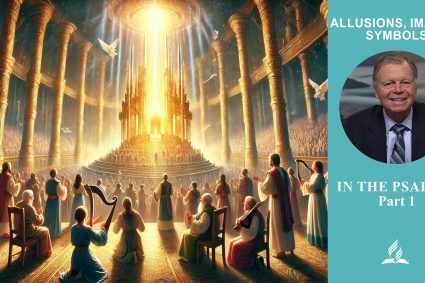
Series EPHESIANS with Pastor Mark Finley |
Lesson 7: The Unified Body of Christ |
Memory Text: Ephesians 4:11.12 – And he gave the apostles, the prophets, the evangelists, the shepherds and teachers, to equip the saints for the work of ministry, for building up the body of Christ. |
Content:
7.1 The Unity of the Spirit
Paul encourages believers in Ephesians 4:1-16 to promote the unity of the church by calling for virtues that lead to this unity. By emphasizing humility, gentleness, and patience, he instructs them to focus on the value of others and not be impressed by their own importance. These virtues foster mutual understanding and cooperation, which in turn contributes to the unity and strengthening of the church. It is a call to develop personal attributes that contribute to harmony and unity in the spirit.
7.2 Together as One in the One
The seven “one…” in Ephesians 4:4-6 underscore the spiritual unity of the church, starting with the “one body” as the body of Christ, the “one Spirit,” the “one hope,” and extending to “one Lord,” “one faith,” “one baptism,” and “one God and Father of all.” Paul aims to emphasize the fundamental interconnectedness and unity of believers and strengthen the sense of belonging in the church.
The poetic description of God as “Father of all” highlights His role as the Creator, while further describing that He is “above all,” “through all,” and “in all,” emphasizes the transcendence, all-encompassing presence, and active involvement of God in the life of each believer.
Ephesians 4:4-6 underscores the reality and celebration of the spiritual unity of believers in Christ. It urges nurturing and promoting unity while also reminding that the unity of the church is supported and sustained by the work of God in Christ.
7.3 The Exalted Christ, Giver of Gifts
In Ephesians 4:7-10, Paul refers to Psalm 68:19 to portray the powerful divine dynamics by describing Jesus’ ascension and the gift of the Holy Spirit. The verse emphasizes that after ascending, Christ distributes gifts of grace to believers and fills the church with the fullness of divine blessings.
Paul uses these verses to depict the overwhelming magnitude of divine power and the fullness of blessings from Christ to believers. These sections highlight the significance of Christ’s ascension and the blessing of spiritual gifts passed on through the Holy Spirit. The texts inspire drawing comfort and hope from the power and presence of Christ manifested in the gift of the Holy Spirit and the abundance of His grace.
7.4 Gifts of the Exalted Jesus
In Ephesians 4:11–13, Paul mentions various gifts that the exalted Jesus gives to His church, including apostles, prophets, evangelists, pastors, and teachers, to equip the saints for ministry and build up the body of Christ. The presented gifts aim to promote unity of faith and the knowledge of the Son of God and bring believers to full maturity and the fullness of Christ (Ephesians 4:13).
Regarding the ongoing validity of the gift of prophecy—embodied, for example, by Ellen White—Ephesians 4:13 was used as a key text to emphasize that this gift continues not only during the time of the apostles but persists until the return of Christ. This interpretation reflected the notion that the prophetic gift endures and helps believers understand and follow the original divine instructions until the end times.
7.5 Growing Up Into Christ
The dangers that threaten the Christ-like maturity of the church lie in various misleading teachings imposed by deceitful people and the constant changing of doctrines, akin to winds (Ephesians 4:14). Paul warns about immaturity, the influence of different teachings, and the deceptive maneuvers of cunning deceivers that threaten to divide the church.
The healthy church functions much like a healthy body, where each part contributes to the health and growth of the body of Christ (Ephesians 4:15–16). The apostolic, prophetic, and teaching gifts within the church have a unifying function and help believers grow together in Christ. It’s crucial to rely on established doctrines to recognize and steadfastly resist the dangers of divisive teachings.
(Visited 66 times, 1 visits today)




















